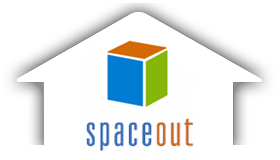 Gone are the days when everything you didn’t need at the time, could just be thrown on the pile in the shed and be done with it. Sheds and similar buildings have, for most people, become a thing of the past, since urban life simply doesn’t allow such spatial luxuries.
Gone are the days when everything you didn’t need at the time, could just be thrown on the pile in the shed and be done with it. Sheds and similar buildings have, for most people, become a thing of the past, since urban life simply doesn’t allow such spatial luxuries.
On the other hand, storing of various items has become a part of everyday life. The modern age has brought a variety of surpluses, and the greater need and opportunities for archiving and storing has, become more accessible even to people with very modest income.
There is no doubt that almost everybody could use extra storage. However, the big question is how much do you need storage?
The following is a list of seven questions to ask yourself (or a storage-rental company) if you are thinking about renting storage space.
1. Do I really need it?
Renting storage space may seem like a great idea for many reasons. However, that may not always be the case. Some people have found that out the hard way, paying storage for much longer than they planned, while delaying the long overdue move of their things month after month.
Accumulating stuff has become a mania of the modern age (see https://en.wikipedia.org/wiki/Compulsive_hoarding). There are many examples of (at least seemingly) perfectly normal people behaving like squirrels, showing that man, simply, has an affinity towards piling. It is advisable to take that into consideration when weighing pros and cons for renting storage space.
2. What sort of storage space do I need?
The first thing that you’ll need to decide on is the type and location of the storage that you will be renting. Several types of storages are generally available, depending on its preferred location, the size and type of assets that will be stored, specific needs in terms of accessing stored goods and other factors.
For example, if you need storage for car parts, it is probably not sensible to rent a container placed on the outskirts of the city, two hours-drive from home. Similarly, if you intend to keep paper files in storage, it needs to be dry and with regulated temperature, in order to provide suitable archive conditions.
2. How much space do I need?
Though this question may seem straightforward, the key factor in deciding on the size of the storage is not just its required volume, but also the projected type and frequency of access to stored assets. If you will be going regularly and you require quick access to small items, it could be wise to consider renting a storage with bigger surface like this one in Melbourne, but with a low roof (saving you some rent money).
If you are renting a shipping container, be sure to ask around for permits or special considerations needed for placing the unit where you intended.
3. How often am I going to go?
This is a key question for determining the best location for your storage space. Keep in mind that, if you intend to go there often, it is probably better to rent something as close as possible, even though it may cost you a bit more. This way you will save petrol money and a lot of time you would have spent driving to and from your storage, and what may at first seem as a bargain may turn out to be quite the opposite.
4. Pricing
Once your preferred location is roughly determined, you should call local rental companies that match your criteria and ask for a detailed breakdown of costs. Ask for the fees, are they fixed or they will change and if so, in what manner, what penalty fees you can expect etc. Many rentals will have all this summed up in a brochure, so be sure to ask for it, in case they don’t offer it themselves.
5. What are the conditions of storing?
It is important to know what may be stored next to your storage. For example, just a little amount of forgotten food can attract rodents and insects that will penetrate all the surrounding storages. There are other ways neighbouring tenant’s assets can negatively affect yours.
6. Am I liable in case of damage, accident or theft?
Storages carry the same risks as any other objects. It is very important to know in advance what situations the rental company’s insurance will cover and how, in order to protect yourself from any unpleasant surprises.
7. How am I going to organize it and what, if any, storage equipment will I need?
It is very important to think about this in advance and to arrange the storage as you fill it, not once you have filled it. Planning this in advance will save you a lot of time and trouble. You’ll have more space and be able to access everything you need much quicker and easier.
Article provided by Kennards Self Storage.

